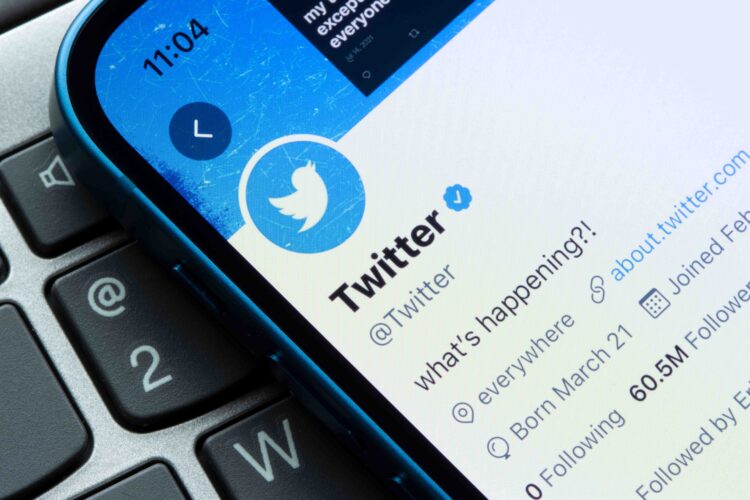How does partnering with Twitter sit with ITV's diversity agenda?

Opinion
As ITV partners with Twitter: ‘Who sups with the devil should have a long spoon’…
For industry observers, the prospect of Tesla billionaire Elon Musk acquiring Twitter presents unique ethical problems for those who have chosen to partner with the social networking service.
Case in point, ITV, the UK’s biggest commercial broadcaster, which last week announced a multi-year partnership to provide content on the platform.
Now, it could be the network is betting on Musk not ending up as the owner, but even so, to announce a ‘multi-year partnership’ at this time appears to be ham-fisted at best.
A cursory Google of ‘Musk’ and ‘Twitter’ over recent weeks reveals a slew of controversial headlines about the deeply unpleasant tycoon, including:
Sky News: Twitter’s ‘very worst’ banned trolls see a way back through Elon Musk (10 May)
CNN: Elon Musk’s possible takeover of Twitter is unsettling for many Black users (5 May)
Bloomberg: Inside Twitter, Shuffled Jobs, and Elon Musk Tweets Dampen Morale (1 June)
The Guardian: Elon Musk tells employees to return to office or ‘pretend to work’ elsewhere (1 June)
If Musk actually buys Twitter and the likes of Trump, David Icke, Alex Jones, Katie Hopkins, and other alleged white nationalists/conspiracy-mongers are welcomed back, how does that sit with ITV’s diversity agenda – and staff?
ITV director of television Kevin Lygo (and fawning myrmidons) may be tempted to dismiss any ethical concerns with a typically glib response, but those employees with a genuine commitment to equality and antiracism may well find themselves in an exceedingly difficult position.
After all, Netflix employees were not happy with the streamer’s allegedly transphobic Dave Chappelle and Ricky Gervais comedy specials, the former prompting a walkout last October.
The Chappelle controversy prompted Netflix to issue an updated cultural policy memo to employees this May which stated:
“Not everyone will like – or agree with – everything on our service.
“While every title is different, we approach them based on the same set of principles: we support the artistic expression of the creators we choose to work with; we program for a diversity of audiences and tastes; and we let viewers decide what’s appropriate for them, versus having Netflix censor specific artists or voices.
As employees we support the principle that Netflix offers a diversity of stories, even if we find some titles counter to our own personal values. Depending on your role, you may need to work on titles you perceive to be harmful. If you’d find it hard to support our content breadth, Netflix may not be the best place for you.”
Back in 2019, certain Channel 4 staff members let it be known that they were far from happy with the decision to commission and broadcast the bone-headed borderline racist reality show The British Tribe Next Door’
If you recall, in the series Gogglebox ‘star’ Scarlett Moffatt and family move to the Namibian village of Otjeme to reside in a fully functioning replica of their County Durham home, interacting with their cattle herding Himba neighbours.
FFS.
The Daily Mail reported at the time: “It was then decided by top executives that they would let minority ethnic staff watch it to gain some feedback. Many went to see it and were horrified. Some were shocked and felt it was both insensitive and insulting but the bosses weren’t interested. There’s certainly anger here that their views went unheard.
Those people feel very let down now. It’s felt the whole screening was a case of going through the motions. There is a lot of anger.”
Amazingly (or not), Alfred ‘Alf’ Lawrie (head of factual entertainment), who commissioned the show, is still in post at C4.
This year Lawrie further burnished his creative credits with the bed-hopping series Open House: The Great Sex Experiment, a show very much in the wheelhouse of his boss chief creative officer Ian Katz, given the amount of smut commissioned by C4 since his arrival in 2017.
A sad reflection of broadcaster’s decline over the last two decades.
C4’s continuing business relationship with Vice Media, the fast-fading enfant terrible content provider also creates presentational problems (if channel management are that bothered), bearing in mind its reported dealings in the Kingdom of Saudi Arabia.
One would think that would have given former Guardian deputy editor/Newsnight boss Katz pause for thought, but not so.
Selective outrage a speciality at Horseferry Road, apparently.
ITV’s partnership with a Musk-owned Twitter is of a far greater magnitude for staff at the broadcaster, especially those tasked with making the it more representative of the population of the UK as a whole, rather than the largely white, middle-aged, middle-class cadre of people who run both the network and the country.
How will ITV group director of diversity and inclusion Ade Rawcliffe and her team react to their employer continuing to be in business with a company that permits the repellent Katie Hopkins to once again pump her performative toxic bilge into society?
As Musk may be trying to weasel out of the deal, ITV staff might not have to face this particular ethical dilemma, but they’re not out of the woods yet.
One could argue that the diversity team are already compromised by not lobbying for Lygo’s retirement, as he really has far too many strikes against him in terms of inappropriate/distasteful comments to be a believable change agent rather than corporate gaslighter par excellence.
Other ill-starred, but less controversial media partnerships included Tivo hooking up with Sky, Snapchat/CNN, and RTE/Paddy Power, all of which ended in tears for at least one of the parties involved.
And lastly, the partnership that could have made UK broadcasters an early and powerful force in the streaming world: Project Kangaroo, the BBC/ITV/Ch4 service foolishly nixed by the Competition Commission in 2009.
One of the great ‘what ifs?’ of TV.
Some saw the lobbying hand of Rupert Murdoch’s BSkyB (and to a lesser extent Virgin Media) in the Commission’s decision; not the first time the billionaire threw a spanner in the works for media in the UK, and with the launch of TalkTV probably/unfortunately not the last.
 Stephen Arnell began his career at the BBC, moving to ITV where he launched and managed digital channels. He continues to consult for streamers and broadcasters on editorial strategy. He currently writes for The Spectator, The Independent, and The Guardian on film, TV and cultural issues. He is also a writer/producer (including Bob Fosse: It’s Showtime for Sky Arts) and novelist.
Stephen Arnell began his career at the BBC, moving to ITV where he launched and managed digital channels. He continues to consult for streamers and broadcasters on editorial strategy. He currently writes for The Spectator, The Independent, and The Guardian on film, TV and cultural issues. He is also a writer/producer (including Bob Fosse: It’s Showtime for Sky Arts) and novelist.




